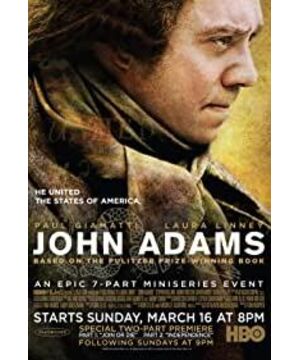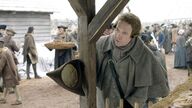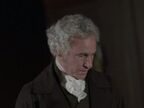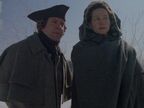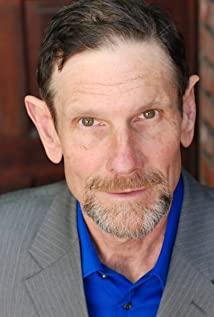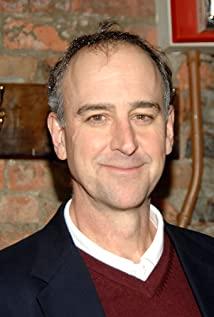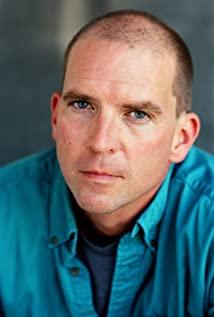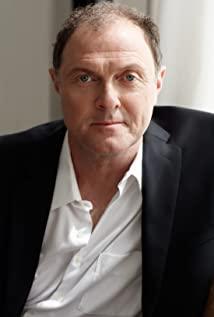("The World According to Tom", Douglas Brinkley, Time, March 15, 2010)
Maybe, history is made by the people, but certainly not written by the people. In many cases, it is difficult for people to even read history, let alone write history. In the United States, it is not the people who write history, but the historian with the pen in his hand and Tom Hanks standing behind the camera. A gloomy portrait of Hanks dominates the March 15, 2010, cover of Time magazine with the headline "History Maker." But that's just the American version, the Asian edition of Time in my hand, and the Hanks story is still in the magazine, but the cover story has become "The Turbulent Times of Formula 1." The editors of Time magazine might have assumed that Asian people would be more interested in racing than Hanks, the two-time Oscar winner who now has the largest audience of "American historians." Time should be wrong, I didn't read that racing report anyway.
Hanks used to have no particular interest in history. But starting with "Saving Private Ryan" (1998), he found more stories beneath the surface of history. Then he became a historical enigma, especially for the history of World War II: in 2001, "Band of Brothers" about the European battlefield was released on HBO, and he was a producer and director; in March 2010, the more expensive miniseries "The Pacific War" " began airing on HBO, where he was a producer. Li Ao once said: "A successful life is an actor at the beginning, then a director, and finally a producer. A failed life is the opposite." The first half of the sentence is really suitable for Hanks. .
Hanks is interested in more than just World War II history. He also filmed "From the Earth to the Moon" (1998) about the US moon landing program, and "John Adams" (2008), a biopic of the second president in the history of the United States. His next filming project was "Assassination of Kennedy." All of Hanks' works are both applauded and popular. According to Time magazine, Hanks has become "the greatest professor of American history" and the "chief chronicler" of the United States.
I used to stand in front of the TV, watching episodes of "Band of Brothers" aired on Hong Kong Pearl TV, watching the war in Europe from a distance. I remember more clearly that I watched episodes of "John Adams" downloaded from the Internet in front of my computer, and let the military and political smoke of the United States before and after independence linger in my mind. Adams, one of the "Founding Fathers" of the United States, once wrote such a poignant sentence: "I must study politics and war, so that my son can have the freedom to study mathematics and philosophy. My son should study mathematics and philosophy, geography, nature history and shipbuilding, sailing, commerce and agriculture, and their children have the right to study painting, poetry, music, architecture, statues, weaving, and pottery.” (By the way, this is from him and his wife, Abigail. Correspondence. Abigail, arguably the most literate "Mother" of the United States, and one of her sons, John Adams, became the President of the United States. Abigail's letter to the two Presidents, in America is also the equivalent of "Frey's Letter.")
I like "John Adams" more than "Band of Brothers." In the past, when the colonial United States rose up, how many heroic figures appeared. The greatness of the United States lies first and foremost in that it is not just one founding father, but a group of founding fathers. The stories of these founding fathers are told over and over again by many people from multiple angles. Each founding father has biographies one after another, and almost all of them are bestsellers. Historian David McCullough's book "John Adams" sold 3 million copies, and Hanks' miniseries "John Adams" was watched by 5.5 million people per episode. This reminds me of two "myths" about the comparison of Chinese and American cultures: First, Americans focus more on the individual, while Chinese focus on the collective; second, Americans focus more on the future, while Chinese focus on the past. But the multitude of Adams, combined with the multitude of Hanks who spoke of Adams, made these two statements ashamed.
Hanks has an important view of history, which is also a difference between him and academic masters, that is, the experience of history should be very personal. This is something we can see as early as "Saving Private Ryan". Hanks also wants viewers to identify with their ancestors, but also to think about things like morality is not black and white, and history can be contingent. "October Siege" also tried to personalize the historical experience, but it was too far apart and too false, so it was made into a kung fu film. Hanks' historical rank is much higher than "October Siege". The main gap between Chinese film workers and Hanks is not in movies.
Hanks also hopes to use history to illuminate reality: "During World War II, we saw the Japanese as 'yellow-skinned slant-eyed dogs' who believed in different gods. They came to kill us because we had a different way of life. Conversely, we Want to eliminate them also because they are different from us. Does that sound a bit similar to what is happening today?” And, now, wars present even greater challenges for American soldiers. Soldiers who have fought in the Pacific War will take a ship for several weeks to return to the continental United States, and then take a long train ride back to their hometown. There is a period of adjustment to return to a peaceful society. "How do the soldiers who fought in the bloody hell of Afghanistan fly home in 18 hours today, how are they going to deal with this?"
"War in the Pacific" premiered on HBO in the United States on March 14. On March 17, I saw a high-definition version with Chinese subtitles on a video site in China. Is this my luck as a Chinese audience? How do we deal with this?
View more about John Adams reviews


